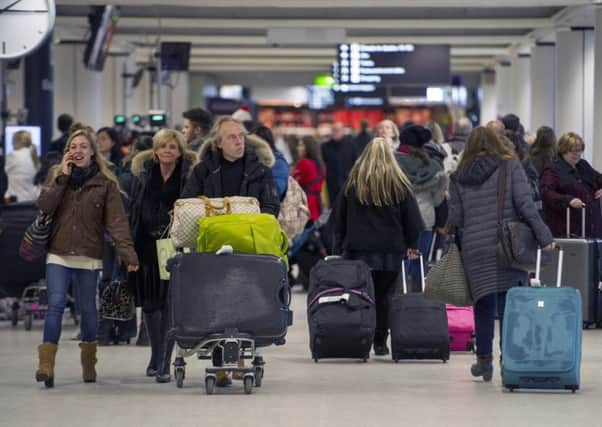Inflation soars to 1.6% as weak pound pushes up prices
This article contains affiliate links. We may earn a small commission on items purchased through this article, but that does not affect our editorial judgement.


The Office for National Statistics (ONS) said the consumer prices index (CPI) measure of inflation hit 1.6 per cent last month, up from 1.2 per cent in November.
Economists were expecting a rise to 1.4 per cent, but the move pushed CPI to its highest level since July 2014, when it also reached 1.6 per cent.
Advertisement
Hide AdAdvertisement
Hide AdSeparate figures for the producer prices index (PPI) showed that factory gate prices rose 2.7 per cent year-on-year in December, as manufacturers started to pass through higher input costs following the collapse of the pound.
ONS head of inflation Mike Prestwood said: “This is the highest CPI has been for over two years, though the annual rate remains below the Bank of England’s target and low by historical standards.
“Rising air fares and food prices, along with petrol prices falling less than last December, all helped to push up the rate of inflation. Rising raw material costs also continued to push up the prices of goods leaving factories.”
The jump in food prices was one of the biggest contributors to rising CPI, with a hike in the cost of vegetables helping push overall food up by 0.8 per cent between November and December, having been flat a year earlier.
The ONS said the 12-month rate for food prices was still negative, down 1 per cent on the year, but that was still the highest since July 2014.
Supermarkets have been locked in a bitter price war, with discount grocers putting pressure on competitors. However, there are signs that the Brexit-hit pound is starting to push up prices at the till, particularly for imported goods.
Sterling weakness was a factor in rising food prices, but was not the sole contributor to the jump, the ONS said.
It follows a significant drop in sterling, with renewed Brexit jitters having sent the pound as low as $1.21 last month, a 19 per cent drop from its pre-referendum high on 23 June.
Advertisement
Hide AdAdvertisement
Hide AdA bumper 49 per cent rise in air fares between November and December contributed to a 2.9 per cent jump in overall transport prices. That is compared with a rise in air fares of 46 per cent a year earlier.
The cost of living was also pushed up by fuel prices, which fell by a smaller amount than they did a year earlier, dropping 0.4 per cent between November and December, compared with 2.8 per cent over the same period in 2015.
The price of petrol at the pump fell by 0.8p per litre to 114.6p in December, while diesel was steady at 118p. That was affected by oil production cuts announced by the Opec cartel in November, with wholesale crude prices up from around $49.09 per barrel to nearly $54.86 by 30 December.
The retail prices index (RPI) – a wider measure of inflation that includes housing costs – rose to 2.5 per cent last month, up from 2.2 per cent in November.
